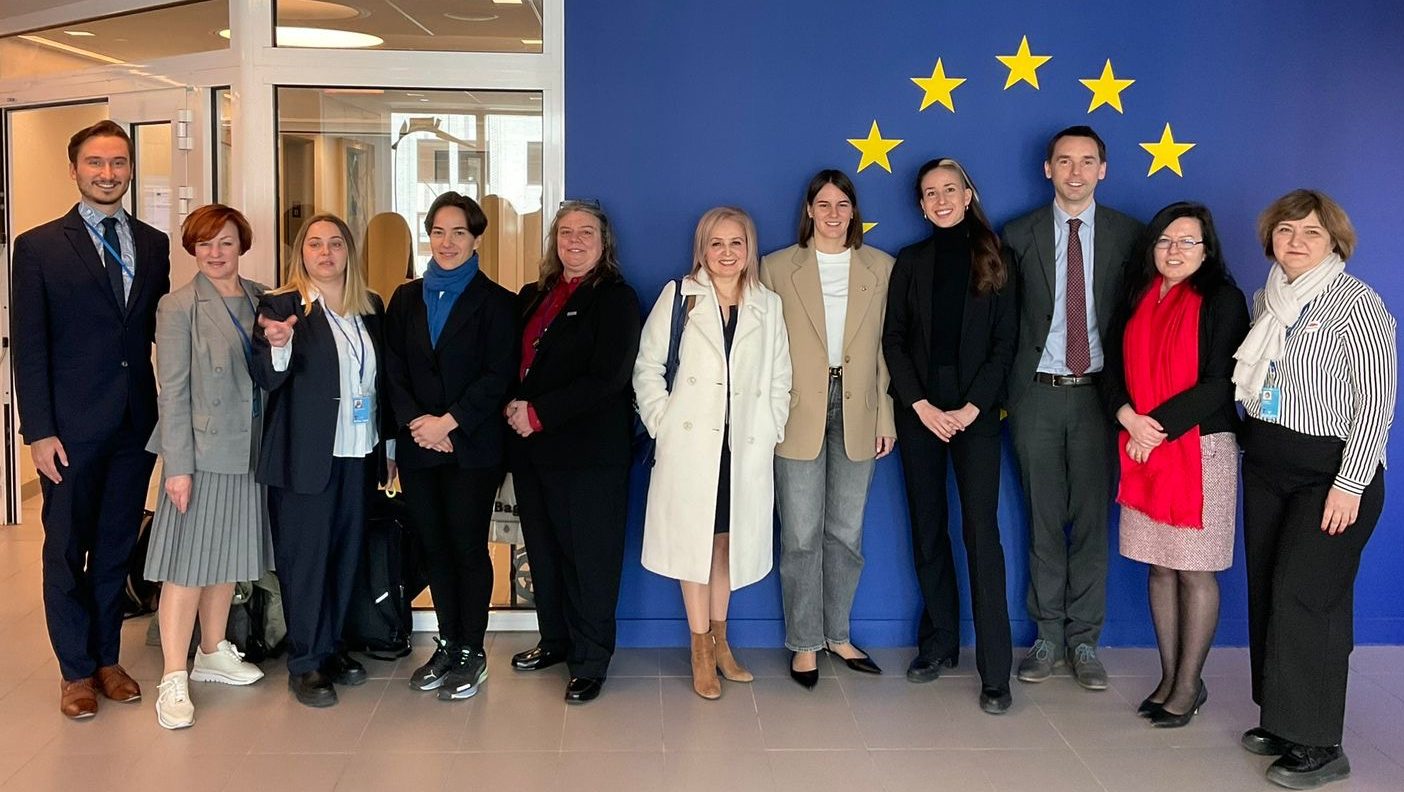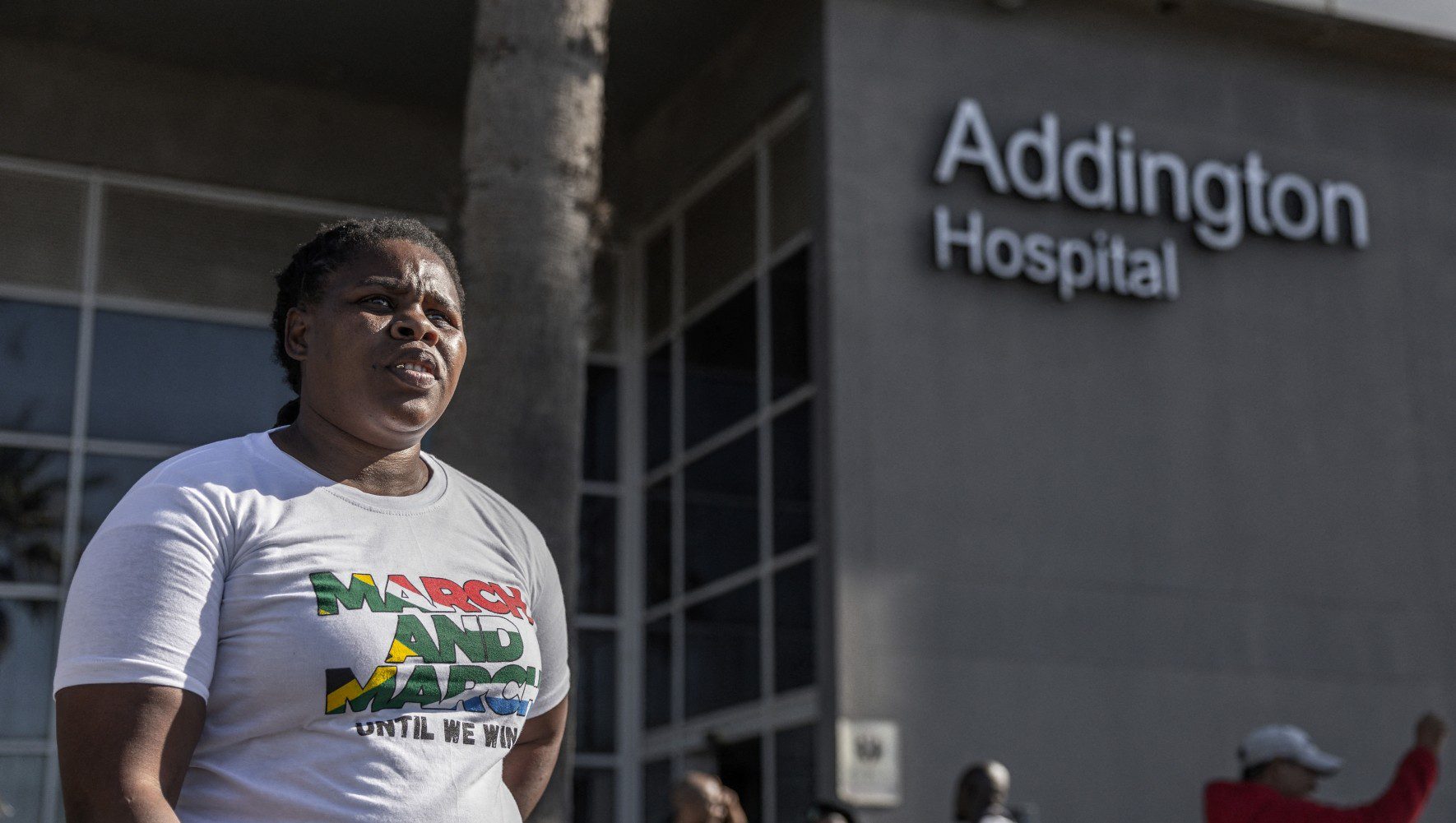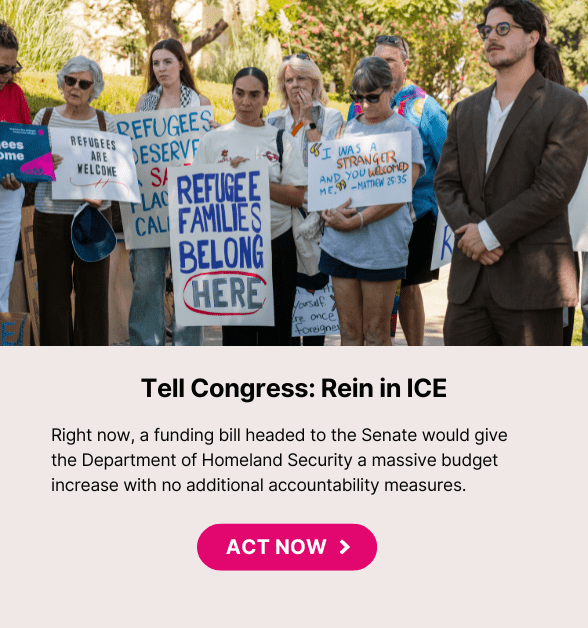
Since full-scale war in Ukraine began in February 2022, women-and-LGBTQ+-led organizations across Europe have assisted people displaced by the conflict and affected by gender-based violence (GBV). This month, HIAS and the Women’s Refugee Commission hosted leaders from seven such organizations on a visit to New York and Washington, D.C., to meet with United Nations officials and other stakeholders. The delegation presented a rare opportunity for people at the frontlines of the Ukrainian refugee response to interact with senior international policymakers.
Anna Burtea represents Inima de Copil (A Child’s Heart), a Romanian organization providing a range of services to children, mothers, and others in need of assistance. Natalia Postolachi is the executive director of CASMED, an organization in Moldova focused on health care and social services.
Last week, Burtea and Postolachi spoke with Heidi Lehmann, HIAS’ senior advisor for gender and inclusion, about their work and what they hoped would come from their visit to the U.S. The interview has been edited and condensed for clarity.
Why did you feel it was so critical to come to the United States as part of this advocacy delegation?
Anna: My motivation comes from seeing, day by day, the work our Ukrainian colleagues do for the people in their community. Since February 2022, Romania has received 4.9 million refugees from Ukraine, of whom 75,000 to 85,000 have remained. We’re a local organization that for the last 28 years has served poor Romanian families and children. Since the war started, we’ve felt it was necessary to adapt our mission and services to embrace these refugees from Ukraine who really needed support.
We have two centers that provide services for 400 to 700 refugees each month. It’s important work. It’s critical. But our funding for much of these services will end in July. This includes information sharing, translation, humanitarian aid, workplace support, educational hubs for children, and support for a Ukrainian school. Our desire to continue to meet these needs is a powerful motivator.
There are very few organizations providing services for refugees at the moment. Most have already shut their services down. Support from civil society isn’t what it was during the first days of the war. Support from Romanian authorities also isn’t enough. And so the presence of local NGOs is critical.
Natalia: The conflict in Ukraine has had a large impact on Moldova. We’re struggling. Inflation has reached upwards of 30%, and high rents have put pressure on vulnerable populations throughout the country.
One million refugees have crossed our border since 2022, and around 100,000 have chosen to remain in Moldova. About 20 to 30% of this population consists of elderly people and those with disabilities. My message to decision makers, policy professionals, and international organizations is that we need assistance. Moldova is trying its best to respond to existing needs, but we don’t have resources. We can’t do it without the support from international organizations.
"My motivation comes from seeing, day by day, the work our Ukrainian colleagues do for the people in their community."Anna Burtea, Inima de Copil
What more can an organization like HIAS do to support you?
Natalia: We’d like HIAS to continue providing us with financial support for psychosocial assistance, as refugees need help dealing with the trauma that they face. When they don’t know how to deal with emotional distress in a healthy way, they start to consume alcohol and exhibit violent behavior toward their families and host families. We’ve had several cases of this, and it requires intervention from community workers and the police.
We also need further support for our frontline staff. Their exposure to distressing stories from refugees — about violence, about losing people — is making them susceptible to burnout.
Lastly, we need help providing refugees with language courses to facilitate their economic empowerment.
Anna: I think HIAS has done something very valuable: You’ve brought us here — a local organization — to make ourselves heard. This is something that doesn’t often happen, which can cause a disconnect between donors and policy makers and the people they’re trying to help. A lot of international humanitarian organizations have come and set up offices and begun to do services, but I think HIAS’ approach of supporting existing, local organizations has worked. We’ve been providing services for the local community for 28 years. We know what we’re doing.
I do think in general so much spending by international organizations and in humanitarian work could be avoided, or at least better used. What we need is to communicate our work better at the international level. We work at an organization where we deal with many different things, and we don’t have specialized staff for administration, procurement, and communications. These are more long-term concerns. I’ve really appreciated, for example, how HIAS has helped us streamline reporting to donors — it’s the sort of thing that can be a time-consuming nightmare for a small organization.
If there’s one thing that comes out of your visit to New York and Washington, D.C., what would you want it to be? What change do you think would be most important that could happen as a result?
Anna: The most important thing would be for people to understand that support for Ukraine requires, by necessity, a regional approach. Even if the war stops tomorrow, there will still be a lot of people outside of Ukraine who want to go home, perhaps 90%. But it’ll be very hard for them to go back, at least in the first years. The need for support and integration, unfortunately, is going to be long-lasting.
Natalia: I hope that the people we met this week will be able to open their hearts, show more empathy, and stand with Ukraine and those affected by this conflict. This will give a sense of hope and possibility to refugees so they can rebuild their lives.
Nobody wants to be a victim. Nobody wants to be vulnerable. All of us desire dignity and independence. We don’t feel good when we’re weak and cannot defend our rights. International and grassroots organizations must work every day, in this unpleasant context, to keep this in mind. We must treat refugees as we’d like to be treated ourselves.



